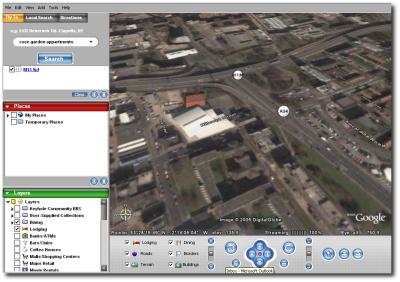Java Runtime Environment/Desktop
 The pact which involves Google and Sun Microsystems arouses my curiosity, particularly due to recent speculation about the Google PC and its vocation. It is no secret that Java is having tremendous impact. Nowadays, Firefox incorporates almost everything one needs, either as a joint plug-in that resides next to core, or as Web-based software, which is accessible via Web sites. Such sites are interpretable using Gecko (the rendered) or various other plus-ins for Flash, videos and the likes of them.
The pact which involves Google and Sun Microsystems arouses my curiosity, particularly due to recent speculation about the Google PC and its vocation. It is no secret that Java is having tremendous impact. Nowadays, Firefox incorporates almost everything one needs, either as a joint plug-in that resides next to core, or as Web-based software, which is accessible via Web sites. Such sites are interpretable using Gecko (the rendered) or various other plus-ins for Flash, videos and the likes of them.
It is all about extensions, it seems — merely JRE applications embedded as panes in Firefox, which makes them well-integrated like the centre of all. Thunderbird does likewise and so can OpenOffice. The main implication is gaps being bridges. No more platform dependencies and filesharing protocols. Firefox makes everything transparent, or so one might assume (albeit you never know for sure with today’s Windows-only Firefox/Thunderbird themes and plug-ins).
For those who haven not heard/read yet, Firefox will soon have P2P file sharing incorporated as a plug-in. Rumours about this add-on have been circulating around the Internet for several weeks, if not even longer. There is even a screenshot. All of this commotion could attract a huge number of users from an already troubled Internet Explorer and, as browsers are used by all, this would push copyrights infringement to very worrisome levels.
Update (05/01/2006): Google renounce low-margin PC speculations






 Filed under:
Filed under: 
 AST night,
AST night, 

 HREE figures which I tend to quote quite often are John Dvorak, Joel Spolsky, and Jeffrey Veen. There is a lot of discussion these days about the impact of the Internet on mainstream media and all of them address the issue regularly. Veen’s
HREE figures which I tend to quote quite often are John Dvorak, Joel Spolsky, and Jeffrey Veen. There is a lot of discussion these days about the impact of the Internet on mainstream media and all of them address the issue regularly. Veen’s 


 recently mentioned site scrapers in the context of
recently mentioned site scrapers in the context of